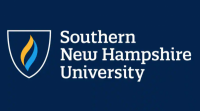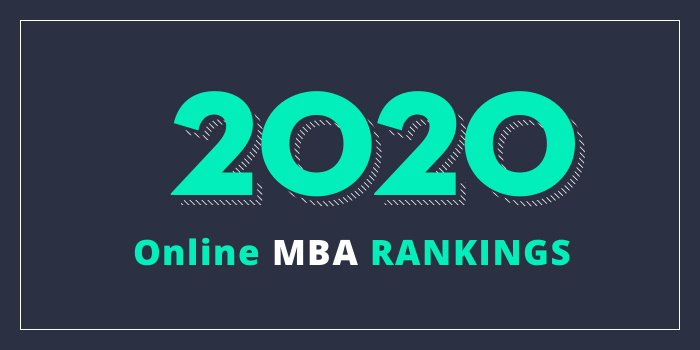
Our 2020 list of the Top 20 Online MBA Programs in the Midwest. We define the Midwest as Ohio, Michigan, Indiana, Illinois, Wisconsin, Minnesota, Iowa, Missouri, Kansas, Nebraska, South Dakota, North Dakota, Wyoming, Idaho, and Montana. For an explanation of our ranking criteria, click here.
| Ranking | School | State |
|---|---|---|
| 1 | Indiana University | Indiana |
| 2 | University of Illinois at Urbana-Champaign | Illinois |
| 3 | University of Nebraska-Lincoln | Nebraska |
| 4 | University of Wisconsin MBA Consortium | Wisconsin |
| 5 | Ball State University | Indiana |
| 6 | University of Kansas | Kansas |
| 7 | University of Cincinnati | Ohio |
| 8 | University of Michigan-Dearborn | Michigan |
| 9 | Central Michigan University | Michigan |
| 10 | Ohio University | Ohio |
| 11 | Creighton University | Nebraska |
| 12 | University of North Dakota | North Dakota |
| 13 | University of South Dakota | South Dakota |
| 14 | University of Wisconsin Whitewater | Wisconsin |
| 15 | Southern Illinois University Carbondale | Illinois |
| 16 | University of Dayton | Ohio |
| 17 | Boise State University | Idaho |
| 18 | Columbia College | Missouri |
| 19 | Kent State University | Ohio |
| 20 | Ohio Dominican University | Ohio |

Elinor Ostrom, the first woman to be awarded the Nobel Prize for Economic Sciences, taught at Indiana University (IU) four decades. The school also houses the School of Informatics and Computing—the first technology program in the country to offer a PhD in Informatics—and the world-famous Kinsey Institute for Research in Sex, Gender and Reproduction, originally known as the source of the "Kinsey Reports" in the 1950s.
The Kelley School of Business at Indiana University has been around for more than 100 years. The school has grown from 70 students in 1920 to more than 12,000 students today across 30 programs in Bloomington, Indianapolis, and online worldwide. The school offers a flexible online MBA program that allows students to customize their experience by selecting 12 credit hours of electives to create a specialized area.
Also known as “Kelley Direct Online,” the program offers the opportunity to complete a dual MBA/MS degree with an online MS in Business Analytics, Entrepreneurship & Innovation, Finance, Global Supply Chain Management, IT Management, Marketing or Strategic Management. This may be accomplished with only 12 additional credit hours.
Other unique opportunities for students include AGILE—Accelerating Global Immersion Leadership Education, which allows students to gain international business experience while pursuing their online degree. Offered each quarter, the AGILE curriculum features travel to places such as Gaborone, Botswana; Sao Paolo, Brazil; Beijing, China; New Delhi, India; Yangon, Myanmar, Johannesburg, South Africa, and Havana/Vinales, Cuba.
The AACSB-accredited Kelley Direct Online MBA takes just two years to complete.
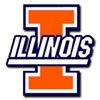
Founded as Illinois Industrial University in 1867, the University of Illinois at Urbana-Champaign (U of I Urbana-Champaign) is one of the original 37 public land-grant institutions created after President Abraham Lincoln signed the Morrill Act in 1862. It is the oldest and largest campus in the University of Illinois system, with 18 colleges that offer more than 150 programs of study.
Among the colleges at U of I Urbana-Champaign is Gies College of Business. Established more than 100 years ago, the college serves more than 6,000 business students each year, with half enrolled in graduate programs, including GCB’s fully online MBA (iMBA).
Seven specializations are available and include Digital Marketing, Financial Management, Global Challenges in Business, Innovation: From Creativity to Entrepreneurship, Managerial Economics and Business Analysis, Strategic Leadership & Management, and Value Chain Management. Students must complete at least six specializations and a program-wide experiential learning course.
“Specializations ultimately come together as a capstone project and lead to the complete iMBA,” says the school. Students will also choose two of three advanced-leadership pathways, including Digitization, Globalization and Innovation.
Learning takes place through Coursera and through the University. The part of the curriculum in the Coursera platform is on demand, so students can complete it at their own pace. Other program highlights include hands-on faculty, interactive in classes and projects, and weekly live class sessions, covering multiple time zones across the world. Students live in more than 50 different countries.
Another highlight of this AACSB-accredited program is job placement. According to The Wall Street Journal, the University of Illinois is among corporate recruiters’ top five places to recruit talent. Just a few firms with University of Illinois roots include YouTube, PayPal, and Yelp.
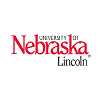
Founded on February 15, 1869, University of Nebraska–Lincoln (UNL) a member of the Big Ten Conference and the Big Ten Academic Alliance and the school is classified within the Carnegie “R1: Doctoral Universities – Highest Research Activity” category. Nebraska is also a land-grant university and a member of the Association of Public and Land-grant Universities (APLU).
Serving 25,390 students, University of Nebraska-Lincoln 150+ undergraduate majors, 69 doctoral degree programs, seven master's degree programs and 33 graduate certificates in all areas. Among them is business—one of the school’s most popular programs.
The College of Business offers a variety of flexible pathways to the coveted MBA. The College of Business here offers a traditional MBA, and a 48 credit hour MBA that’s delivered entirely online. The school also offers a Flex MBA program, which is a blend of both on-campus and online courses. However, the majority of courses are taken on-campus at the “renowned” Howard L. Hawks Hall, which opened in 2017.
For the 100% online MBA program known as MBA@Nebraska, students “will never have to come to campus, which makes this option the most flexible” of the school’s three MBA programs, says the school. The program includes 10 core classes (30 hours), nine hours of breadth electives, and nine hours of electives, for a total of 48 credit hours. Specialization options include Business Analytics, Finance, International Business, Marketing and Supply Chain Management. Online graduate certificates are also available in Business Analytics, Financial Communications, Human Resource Management, and Supply Chain Management.
In addition to the option to choose a specialization or certificate, MBA@Nebraska students are expected to participate in an internship. “Internships are designed to give students practical experience in managerial and/or administrative situations.” Students can participate in a maximum of two internships and earn three hours of elective credit for each internship, for a maximum of six hours.
Start times for the MBA@Nebraska program are January, March, June, August or October of each year. The average completion time for the program is three years, but it is possible to complete it in 1.5 years. However, students are allowed up to 10 years to complete this AACSB-accredited program.

Serving approximately 170,000 students each year at 13 universities across 26 campuses, the University of Wisconsin System (UW) is one of the largest systems of public higher education in the nation. Through its statewide extension and outreach programs, the system also serves more than one million citizens.
Three campuses—UW-Eau Claire, UW-La Crosse, and UW-Oshkosh—have joined forces to create the University of Wisconsin MBA Consortium.
This AACSB-accredited pathway is the only offering among UW’s peer consortial programs to grant the degree from the MBA Consortium Program rather than from one of the partner schools. The program curriculum “combines four credits of business essentials courses, 22 credits of core courses, and ten credits of electives to cover general business competencies,” says the school, “while enabling” students to design a customized learning experience based on their individual interests.
Through electives, students may focus in a specific area or two, without officially declaring an emphasis/concentration. Elective course highlights include Mutual Fund Investing, Incorporation of Exchange Rates in Strategic Decision-Making, Regional Trade Agreements and Multinational Corporations, Corporate Venturing, Managing Technology in Turbulent Times, Sustainability and Organizational Management and Introduction to Enterprise Resource Planning.
Other course highlights for the MBA Consortium Program include Leading a Diverse and Dynamic Workforce, Developing New Products and Services, Competing Strategically in a Global Environment, and Navigating Change amid Uncertainty. Students will also complete a capstone (Refining Your Plan for Success) at the end of the program. Coursework for the program may be completed entirely online—no campus visits required.
Graduates will be able to “demonstrate the knowledge and skills necessary to be effective leaders” who can lead a diverse and inclusive organization, identify and evaluate market opportunity, use critical thinking and analytical reasoning to make informed business decisions, and create and maintain a dynamic vision for personal and professional development in a global and domestic context.

As of Fall 2019, Ball State University (BSU) offered the lowest tuition in the Mid-American Conference. With more than 22,500 students and 197,000 alumni worldwide, the school also welcomed its largest freshman class in the University’s 101-year history in Fall 2019.
The Miller College of Business at Ball State University offers an online MBA program that may be completed in as few as two years. The Miller MBA includes 24 credits of core courses and 6-nine credits of MBA electives “covering in-depth knowledge of entrepreneurship, finance, management, marketing, sales, and more,” says the school.
This AACSB-accredited program offers five optional concentrations including Entrepreneurship, Finance, Health Economics, Policy, and Administration, Logistics and Supply Chain Management, and Sales Management. An additional option is the General MBA, which allows students to customize their experience through a variety of course subjects.
Miller Online MBA students will complete coursework for the program through a combination of asynchronous (no specific sign-on time each week) and synchronous (specific time to watch and participate in live webcast lectures and discussions) formats. Students will “keep in contact with instructors and classmates using e-mail, discussion boards, file sharing, chats, web page posting, and possibly over the telephone.”
Miller College of Business offers an additional delivery format option designed for students who prefer a combination of online and on-campus classes. The Hybrid MBA allows students to choose which classes they would like to take on-campus and which ones they prefer to complete online. Most students (in either program) enroll in an average of two courses each semester and typically complete the program in five to six semesters. Three start times are available including Fall, Spring, and Summer.
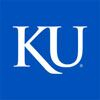
In 1866, University of Kansas welcomed its first class of 55 students to what the school calls “an unfinished building on a treeless ridge called Mount Oread.” Today, the school has five campuses — the Lawrence campus, the Edwards Campus in Overland Park, and medical branches in Kansas City, Wichita, and Salina — serving more than 28,500 students in dozens of schools and departments.
The School of Business at University of Kansas (KU School of Business) offers an AACSB-accredited MBA program that may be completed entirely online. There are no residency requirements. The program consists of 30 credits of core business classes and 12 credits of focus area courses for a total of 42 credit hours. Courses are eight weeks each, and three focus areas are available including Finance, Management & Leadership, and Marketing.
The Finance focus area requires four courses including Advanced Topics in Finance, Corporate Finance, Financial Institutions and Markets, and Investments. Management & Leadership requires Developing Effective Management and Team Skills, Leadership Philosophy and Practice, Managing Internationally, and Strategic Organizational Design and Change Management. The Marketing focus requires Consumer Behavior, Digital and Social Media Marketing, Global Marketing, and Integrated Marketing Communications.
With three start dates per year (spring, summer and fall), the KU School of Business Online MBA may be completed in just over two years.

The University of Cincinnati was established in 1819, making it one of the oldest universities in the country. The school UC serves 46,388 students across 14 colleges and it houses one of the countries top three co-op programs. Students in the program “earn a collective $75 million annually working for about 1,300 international employers via their co-op work placements,” says the school “alternating academic semesters with professional, paid work directly tied to their majors with employers like Apple, Boeing, Disney, Fisher Price, HBO, NASA, Nike, P&G, Toyota and hundreds more.”
The Carl H. Lindner College of Business at the University of Cincinnati has been accredited by the AACSB since 1919. The school offers an online MBA program that combines academic study with hands-on learning. The 38 to 48 credit hour program provides core skills in Economics, Marketing, Information Technology, Accounting, and Leadership. Besides the opportunity to earn their degree at an accelerated pace (in as few as 12 months), Lindner Online MBA students have seven online certificate/concentration options including Health Care Administration, Health Care Finance, Health Care Operations, Health Care Policy and Regulation, Marketing, Corporate Taxation, and Individual Taxation.
Each certificate/concentration requires 12 credit hours.

University of Michigan-Dearborn (UM Dearborn) was founded in 1959 with a gift of just over 200 acres of land and $6.5 million from the Ford Motor Company. Since registering its first class of 34 students, the school has set new enrollment records annually since 2014. Currently, the school serves 7,185 undergraduate, 2,191 graduate, and 92 doctoral students enrolled in more than 200 programs in four colleges.
The College of Business at University of Michigan-Dearborn offers several MBA programs that may be completed 100% online, on-campus, or a combination of the two. Programs include an MBA with a concentration, the MBA/MS in Finance, and the MBA/MSE-ISE (MBA/MS in Engineering, Industrial Systems Engineering).
Concentrations for the MBA are optional and include Accounting, Finance, International Business, Management Information Systems, Marketing, and Supply Chain Management. Per the school, MBA students can complete the concentrations in Finance and International Business online, or they can take online elective courses, instead.
Students who choose the hybrid option will have full access to campus-based resources and they will participate in face-to-face events, such as professional organizations and study-abroad opportunities.
The AACSB-accredited online MBA requires 36 to 48 credit hours of study, and it may be completed within two to two-and-a-half years. Admission is rolling, so students may begin the program in September or January. May admission is also usually possible for part-time students.
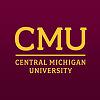
Central Michigan University (CMU) is among just five percent of U.S. universities in the highest two Carnegie research classifications. Serving 21,705 students, the school offers approximately 300 programs at the undergraduate, masters, specialist, and doctoral levels across seven colleges.
The Central Michigan University Global Campus (CMU Global Campus) and College of Business Administration (CBA) offer an online MBA program that features several emphasis areas including Human Resource Management, Logistics Management, Marketing, Value-Driven Organization (VDO), and ERP Emphasis Using SAP Software. SAP is the world's largest enterprise applications software company, with a wide range of software used by more than 38,000 firms in over 120 countries. The ERP Emphasis/SAP is a 40 credit hour program that requires a two-week face-to-face SAP Academy.
Depending on the area of concentration, MBA students may have to take anywhere from 36 to 43 credit hours to complete the program. The online MBA program at CMU Global Campus is AACSB-accredited.

Ohio University was established in 1804 as the state’s first university. Serving more than 17,900 23,000 students at the Athens campus, the school offers 250 academic programs across 20+ colleges and schools.
The College of Business at Ohio University offers an AACSB-accredited MBA program that may be completed entirely online. There is no GMAT requirement for admission and students may choose from eight concentrations including Accounting, Business Analytics, Business Venturing & Entrepreneurship, Executive Management, Finance, Health Care, Operations and Supply Chain Management, and Strategic Selling & Sales Leadership.
Course highlights include Accounting for Executives, Applied Business Experience (CAPSIM), Descriptive Analytics, Organizational Behavior and Human Resource Management, and Strategic Use of Information. In the CAPSIM course, “students will work in teams and apply course material to complete simulated business experience,” says the school. In the simulation, each team runs a fictitious firm.
Students “will define a business problem to address, assess the organization and its context, suggest solutions, and deliver an action plan for implementing the solution. Teams compete with one another in a dynamic industry environment.” The CAPSIM course “provides an opportunity to apply many of the concepts learned throughout the program.”
The MBA program at Ohio University may be completed in just two years, full-time.

Creighton University is one of 27 Jesuit colleges and universities in the United States. Founded in 1878, the school serves 8,910 undergraduate, graduate and professional students enrolled in degrees and certificate programs in more than 160 areas. More than 40 graduate degree programs are also available and programs are offered across nine schools and colleges.
Heider College of Business offers an MBA program that can be completed in just over two years. Three delivery options are available including completion of courses online, on campus, or a combination of the two. This 33 credit hour program offers several MBA concentrations, the option to add a graduate certificate or a dual degree in addition to the MBA. Concentrations include Accounting, Business Intelligence and Analytics, Financial Psychology & Behavioral Finance (also a certificate), Finance, Leadership, and Personal Financial Planning (also a certificate).
Other certificate options include Business Analytics, Healthcare Management, Negotiation & Conflict Resolution, Organizational Leadership, and Project Management. Students can combine numerous degrees with the MBA. Just a few include MBA + Law, MBA + PharmD, MBA + MS in Investment Management & Financial Analysis.
Graduates of the AACSB-accredited Heider Online MBA Program have gone on to pursue careers at numerous Fortune 500 companies such as ConAgra Foods, Mutual of Omaha, TD Ameritrade, Union Pacific, and others. Job titles of recent graduates include CEO, Finance Manager, Marketing Manager, Operations Manager, President, Project Manager, and Vice President.
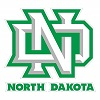
University of North Dakota (UND) was founded in 1883—six years before the state itself was established. The school gave North Dakota its name when the former Dakota territories separated into two distinct states. Serving approximately 13,581 students on a busy 521-acre campus, today, UND is North Dakota’s oldest and largest university.
More than 250 programs are offered across UND’s nine colleges and schools. The Nistler College of Business & Public Administration (UND CoBPA) offers a 33 to 34 credit hour MBA program that takes around two years to complete. The online program does not require any campus visits. Instead, students attend via “live” Web classes held in the evenings, one evening per week, for three hours.
The UND CoBPA MBA offers five tracks including Business Analytics, Government & Business, International Business, Social Entrepreneurship, and the General Concentration. Students in the focused concentrations will complete additional coursework specific to the track. For example, the Social Entrepreneurship Track requires Creation & Management of Social Enterprises, Political Advocacy & Social Entrepreneurship, and Seminar in Social Entrepreneurship. And for the International Business Track, students obtain internationally focused coursework by studying abroad at the BI Norwegian Business School.
Students in the General Concentration will students choose courses from a variety of disciplines including marketing, economics, management, healthcare administration, and social entrepreneurship. In addition, the school says that students “will have the opportunity to choose cognate courses outside of the College of Business Administration for a more tailored program experience.” Some of the courses that students can choose in this concentration are Brand Management, Demographics, Forecasting, Health Policy, and Relationship Marketing.
Students may enter the AACSB-accredited UND CoBPA MBA program every fall (August), spring (January), or summer (May).

Established in 1862, University of South Dakota state’s oldest university. The school serves more than 10,000 students enrolled in 202 undergraduate programs and 78 graduate programs in 10 colleges and schools.
Established in 1927, the University of South Dakota Beacom School of Business (USD Beacom) offers a General Management MBA that can be completed mostly online. The program has Business Analytics, Health Services Administration, Finance, Marketing, and Operations and Supply Chain Management specializations for students seeking a focused degree. A General Management MBA is also available.
Course highlights for the USD Beacom Online MBA include Business and Its Environment, Leadership Development, Managerial Marketing, Production Operations Management, Quantitative Analysis, and Strategic Management. The school says, “Leadership Development is offered primarily online with a rich, five-day, face-to-face experience. Content for this course will be delivered online initially with the residency component taking place in either July or April (depending on the semester). Students enjoy this signature experience, and use the opportunity to network and form a deeper connection with faculty and colleagues.”
The USD Beacom Online MBA takes as few as 12 months to complete, full-time (including summer semester), or two to four years to complete, part-time. However, students are allowed up to seven years to complete this AACSB-accredited program.
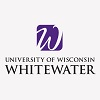
University of Wisconsin Whitewater (UW-Whitewater) began more than 150 years ago. The second-oldest teachers college in Wisconsin, UW-Whitewater serves more than 13,000 students at the Whitewater and Rock County campuses, offering more than 200 undergraduate and graduate degrees, minors, and certificates. Programs are offered across six colleges and schools, including the College of Business and Economics, which offers an MBA Program that may be completed entirely online.
Known as the “UW-Whitewater MBA,” this AACSB-accredited program highlights cases and projects that give students the opportunity to practice using critical thinking skills, the development of project management skills, and projects that help students improve their ability to work in teams and lead.
Other program highlights include advanced graduate courses in functional areas like economics, management, technology, and marketing, and 11 different emphases and over 40 electives, “covering the breadth of contemporary business issues,” says the school. The programs wide range of electives allows students to tailor the UW-Whitewater MBA program to meet their interests and needs.
Emphasis areas include Customized, Data Analytics, Environmental Safety and Health, Finance, Human Resources Management, Information Technology Management, International Business, Management, Marketing, Project Management, and Supply Chain Management. Students may also customize an emphasis by choosing courses across emphases.
The UW-Whitewater MBA requires completion of 36 credit hours including Breadth (24 credits) Emphasis (nine credits) and Elective (three credits). If a student has met prerequisite requirements, they may be required to complete 0-14 credits of Common Body of Knowledge (CBK) courses. The number of courses required will be determined based on transcript review. Candidates with an undergraduate degree in business may not need to complete CBKs, or requirements may be very limited.

Ranked among the top 5% of all U.S. higher education institutions for research, Southern Illinois University Carbondale (SIU Carbondale) offers 200 majors, minors, and specifications at the undergraduate level along with master's degrees in over 60 programs, a Graduate Certification in Gerontology, and doctoral degrees through 29 programs. Programs are offered across 11 colleges and schools.
The College of Business at SIU Carbondale offers an AACSB-accredited MBA program that can be completed entirely online. The program does not require any campus visits and it may be completed in less than two years. The SIU oMBA program has optional concentrations in Agribusiness Economics and Analytics for Managers. Fewer than 10 public universities in the U.S. offer an Agribusiness concentration as part of their MBA program.
The Agribusiness option is offered in partnership with the College of Agricultural Sciences. Per the school, both the General MBA and the MBA with a Concentration in Agribusiness Economics feature a “structured, 23-month curriculum delivered through a focused, modular format,” as well as “participation with a cohort of fellow students that encourages interaction and collaboration.” The Agribusiness concentration prepares graduates for managerial careers in the field of agribusiness economics such as banking and finance, business management, farm appraisal, farm management, market and policy analysis, grain merchandising and more.
The oMBA Analytics option provides access to and support by “top analytics experts through the Pontikes Center for Advanced Analytics and Artificial Intelligence.” Through the concentration, students will learn how to manage the process of converting large amounts of collected data into valuable and useful information. The program combines traditional MBA courses with analytics courses to prepare students to manage the connection of data and people. Graduates are prepared for leadership positions in just about every business sector: engineering, financial services, healthcare, hospitality, logistics, manufacturing, marketing, retail, etc.
Courses the MBA and MBA with a concentration are taught by the same faculty who teach in the on-campus program.
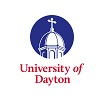
Founded in 1850, the University of Dayton (UD) is a Catholic research university serving nearly 11,500 undergraduate, graduate, and law students. With 120,000+ living alumni worldwide, UD began with just one building and one farm. Today, the school sits on nearly 400 acres that house five colleges and schools including the College of Arts and Sciences, and the Schools of Business Administration, Education and Health Sciences, Engineering, and Law.
The School of Business Administration offers an MBA program known as MBA@Dayton. This AACSB-accredited program offers concentrations in Business Analytics and Marketing. Students choosing either option will complete three elective courses instead of two (for a total of nine credits). This will add three credits to the course of study.
Several pathways are available including One-Year, Foundational, and Accelerated. The One-Year MBA path allows students to advance their careers sooner, for less of a financial investment, by completing the program in a shorter amount of time. Students will take 13-14 courses (30-31.5 credits), along with two immersions in 12 months. Immersions are collaborative learning experiences that provide opportunities to learn from influential business leaders, engage in group workshops, and network with peers
The Foundational MBA is designed for professionals who need to build a comprehensive foundation in the fundamentals of business. Students will take 18-22 courses (36-45 credits) and two immersions in 18-24 months. The Accelerated MBA is designed for business professionals who have eight or more years of full-time work experience. Students complete fewer foundation courses, allowing them to advance their careers faster and for less of a financial investment. The program consists of 14-19 courses (31.5-39 credits) and two immersions. The program may be completed in 15-18 months.
Graduates of all programs will have the skills need to advance into a leadership role in their current industry, transition into a different industry, or move from a small business or nonprofit organization to a more corporate environment.

Founded in 1932 by the Episcopal Church, Boise State University became an independent junior college in 1934, and has been awarding baccalaureate and master degrees since 1965. Serving more than 26,250 students enrolled in 200 areas of study, Boise State University is Idaho’s largest university. Programs at this doctoral research institution are offered in seven academic colleges, the Honors College, and the Graduate College.
The College of Business and Economics at Boise State University (COBE Boise State) offers an MBA program that is the only MBA program in the Treasure Valley with AACSB accreditation. Designed for mid-career professionals, the COBE MBA provides 49 credit hours of study in 13 courses offered in 8-week quarters. Launched in Fall 2019, the program now offers Management, Healthcare Leadership, and Construction Management specializations.
Course highlights for the program include Business Plan Development, Design Thinking and Strategic Management, Global Economics: Policy and Trade, Information Technology and Business Alignment, Managing Successful Projects, and People and Organizations.
Offered entirely online, the COBE MBA uses 100% digital content, “replacing traditional textbook cost and hassle,” says the school. Program tuition includes all course materials, which are accessible through any web-enabled device that supports HTML5. Students can complete the program in as few as 12 months, full-time.

Founded in 1851, Columbia College is a private, nonprofit liberal arts and sciences college that has a traditional campus in Columbia, Missouri and more than 30 locations in multiple states and Cuba. Originally founded as Christian Female College, the college changed its name to Columbia College in 1970. That year, it transitioned from a two-year women's college to a four-year coeducational college. The school serves approximately 18,000 students annually and offers associate and bachelor's degrees, as well as master's degrees at the main campus, selected venues, and online.
The Robert W. Plaster School of Business at Columbia College offers an MBA that “centers on a professional approach which balances business theory with practice in the search for knowledge, skills, and methodologies that are useful in formulating strategies for the future in an uncertain and often turbulent business environment,” says the school. Designed for working adults in the early stages of their careers in small or middle-sized organizations, the program prepares students for advancement to upper-level management in the future.
This 36 credit hour program offers both Accounting and Human Resource Management specializations. All students must complete a Capstone course and assessment. “The goal in assessment,” says the school “is to use methods that replicate authentic challenges and conditions rather than isolated drills or tests. Use of the case method and discussion learning is a primary component of courses in the MBA program.”
The Columbia College Online MBA is accredited by the Accreditation Council for Business Schools and Programs (ACBSP).

Kent State University was founded in 1910 as a teacher-training school. Today, the school consists of an eight-campus system that serves 38,000 students enrolled in more than 340 undergraduate and graduate degree programs. Programs are offered in dozens of colleges, departments, and schools.
The College of Business Administration at Kent State University offers an online MBA that blends classroom instruction, experiential learning and optional education abroad experiences. Project-based courses for this 36 credit hour program are delivered in 8-week modules and two concentrations are available: International Business and Supply Chain Management. Of the 36 credit hours, 24 hours are core courses, nine are electives, and the Capstone is three credits. The optional study abroad course can fulfill three out of the nine elective credits.
Course highlights for this AACSB-accredited program include Analytics for Decision Making, Business Strategy (Capstone), Global Technology Strategy, Global Conditions and Macroeconomics Policy, Law and Ethics, Leadership and Managerial Assessment, and Operations, Service and Supply Chain Management.
Other program benefits include access to a career coach, Career Services, and academic advisors, and the option to enroll year-round in the fall, spring and summer semesters.
Prior work experience or a business-related degree are not required and students can complete the Kent State Online MBA in as few as 12 months.
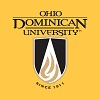
Founded in 1911, Ohio Dominican University (ODU) is Central Ohio’s only Catholic University. The school serves around 1,650 students enrolled in 40 undergraduate majors and nine graduate degrees across a number of divisions. The Division of Business offers an online MBA program that has six concentration options including Data Analytics, Risk Management, Finance, Accounting, Leadership, and Sport Management. A concentration is not required, but should the student choose one, they will have to take two additional courses (six credit hours).
The ACBSP-accredited ODU Online MBA “stresses ethical leadership and strategic agility,” says the school, which prepares students “for leadership positions in a wide variety of agencies, organizations and corporations.” Students in the program may take one or two courses at a time either 100% online, on-campus (classes meet one evening per week) or a combination of both. The GMAT is not required for admission and the program may be completed in as few as 16 months.

